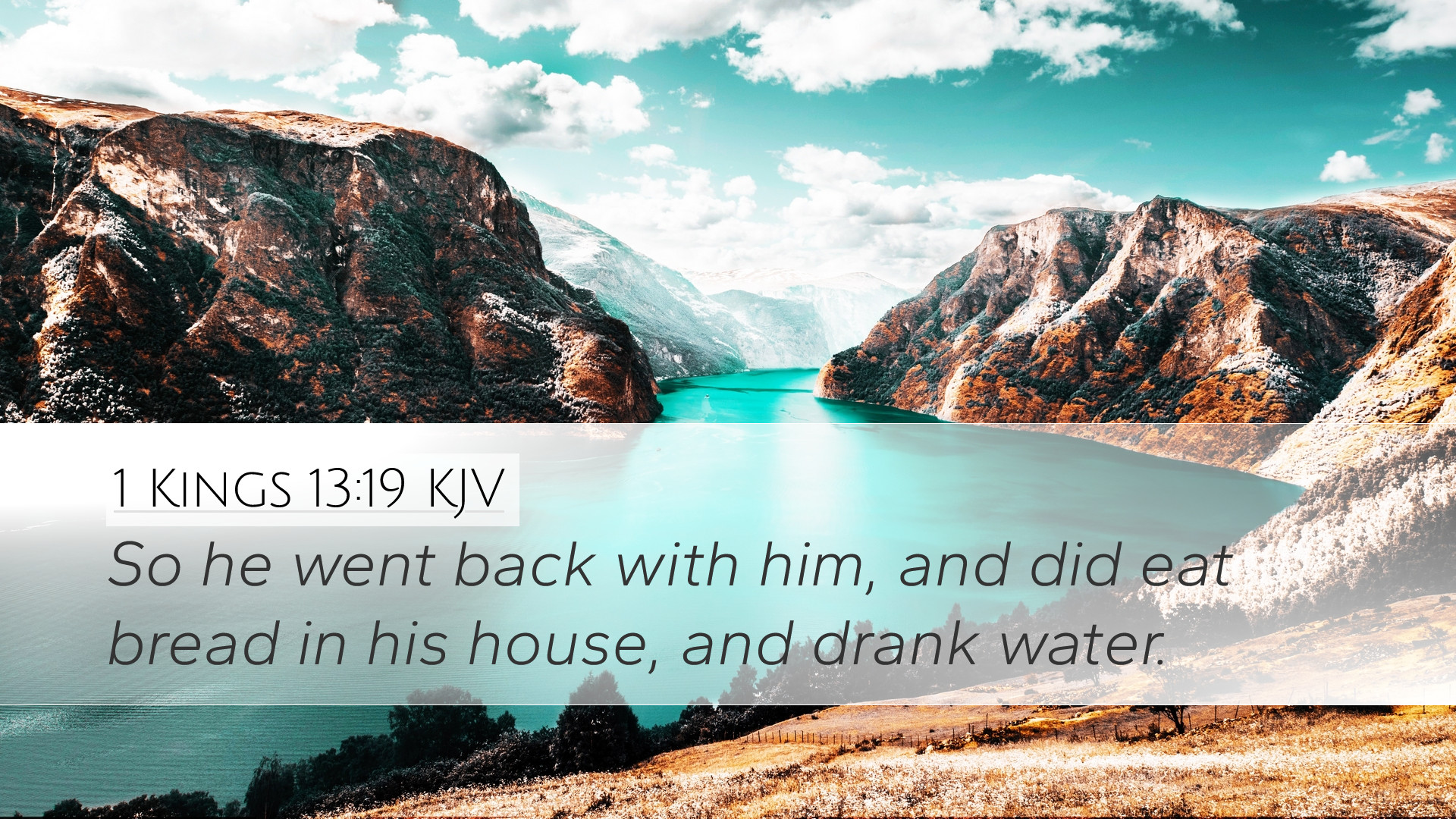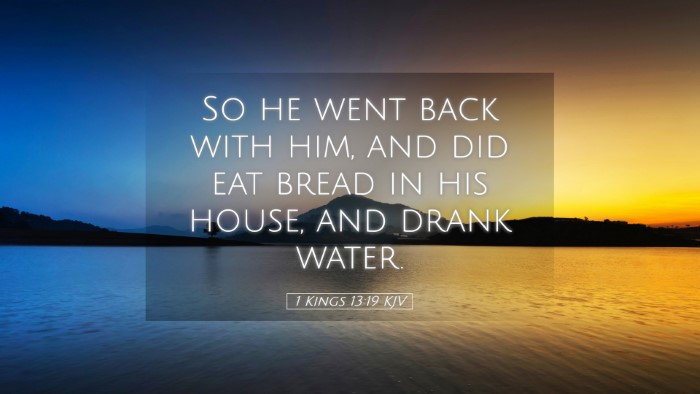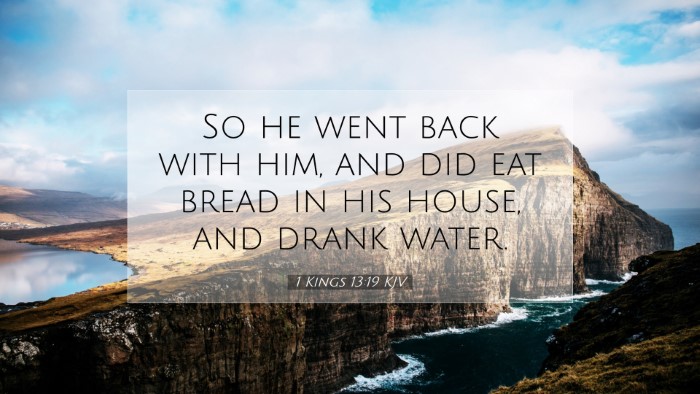Commentary on 1 Kings 13:19
Verse Context: The verse reads: "So he went back with him, and did eat bread in his house, and drank water." This follows the narrative of a prophet who was initially sent by God to deliver a message to King Jeroboam, warning him of the impending judgment due to his idolatry.
Introduction
The story surrounding 1 Kings 13:19 provides a poignant examination of disobedience and its consequences. It highlights the prophetic agency of the man of God, and his tragic downfall, which serves as a theological lesson for leaders and believers alike. This commentary draws insights from several public domain sources to elucidate the implications of this event.
Insights from Matthew Henry
According to Matthew Henry, the actions of the prophet reflect the challenges faced by those sent by God. Initially, the prophet was obedient, delivering God’s command without hesitation. However, he fell prey to the temptation of being misled by false prophets, demonstrating the vulnerability of even the most faithful servants of God. Henry emphasizes the importance of adhering faithfully to God's direction and warns against the perils of deviating from divine instruction.
Henry notes that the prophet’s death, which follows this verse, signifies the grave consequences of disobedience. “It is a caution to us,” he writes, “that we must not be swayed by the words of those who seem to speak in God’s name if they contradict His established commandments.” Thus, the man’s failure to stand firm in his mission serves as an admonition for future generations.
Insights from Albert Barnes
Albert Barnes provides a more historical context for this verse, outlining the political and spiritual climate of Israel at the time. He explains that the northern kingdom, ruled under Jeroboam, was rife with idolatry and deviation from the covenantal laws. In this context, the prophet’s message was radical and confrontational.
Barnes also discusses the character of the prophet, pointing out that his initial faithfulness is commendable but ultimately overshadowed by his lapse in judgment. The act of eating and drinking with the old prophet stands as a metaphor for compromise. His submission to the invitation signifies a departure from his commitment and a failure to maintain spiritual integrity. “This teaches us,” Barnes writes, “that even those who are called by God may be led astray if they do not remain vigilant.”
Insights from Adam Clarke
Adam Clarke’s perspective delves into the psychological and spiritual dynamics of the event. He reflects on the symbols represented within the narrative. Clarke notes that the act of eating and drinking can symbolize fellowship and acceptance, yet in this case, it connotes betrayal to one's divine mission.
Clarke expresses concern over the manipulative nature of the old prophet who lured the man of God back to his house—a reflection of the sinister influence that can persuade even the most devoted individuals to forsake their calling. He states, “The allurements of fellowship may lead the faithful child of God astray if they do not discern the truth.” Clarke's commentary surfaces important theological implications regarding discernment, authority, and spiritual warfare.
Theological Implications
- Obedience to Divine Revelation: The narrative showcases the necessity of strict adherence to divine instruction. The repercussions of compromise are dire, as evidenced by the impending judgment that follows.
- Discernment in the Faith: The episode stresses the importance of discernment, reminding believers to test the spirits and ensure that counsel aligns with God’s word.
- The Danger of Influence: The story warns of the potential for negative influence from others, particularly when it contradicts God’s commands. Believers must be wary of external pressures that may lead them to disobedience.
- The Fragility of Human Nature: Even the most faithful can falter. This serves as a reminder of the importance of continual reliance on God’s strength and wisdom.
Conclusion
As we reflect on 1 Kings 13:19, it is crucial for all who labor in ministry, study theology, or seek to grow spiritually to internalize the lessons learned from this tragic account. The combination of insights from Matthew Henry, Albert Barnes, and Adam Clarke elucidates the multifaceted nature of obedience, the susceptibility to temptation, and the severe consequences that can arise from neglecting God's directives.
This commentary serves not only as a reflection on a pivotal narrative in Scripture but also as a guide for maintaining fidelity to God’s calling in an age where distractions and false teachings abound. May the lessons from this passage encourage all believers to remain steadfast in their walk with God.


